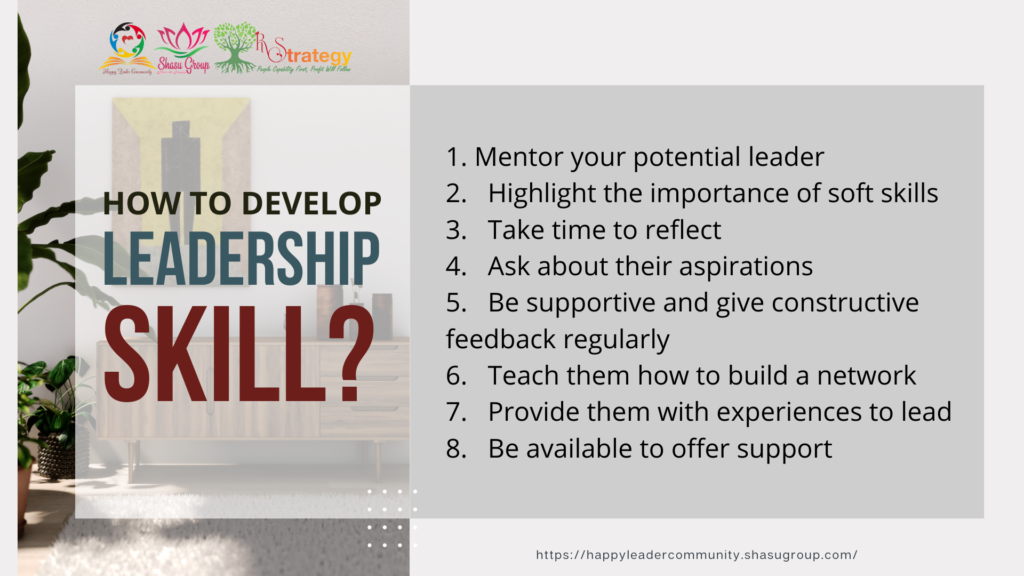Benefits of developing leaders
Staff engagement can be increased by investing time in developing employee leadership abilities. Promoting increased employee engagement can help a company save money on recruiting new staff by lowering overall employee turnover rates.
Additionally, promoting from within the company is less expensive. Personnel can set themselves apart from the competition by demonstrating stronger leadership abilities and producing high-quality work if they know their company is more likely to promote current employees. Candidates may be more interested in applying for a position if they know the organization needs time to build employee leadership.
Xem thêm về các nhóm của chúng tôi tại đây
Qualities of Potential Leaders in the Workplace
Leaders in the workplace display a variety of characteristics, including empathy for their coworkers, dedication to their work, and commitment to the company’s goals. Here are some more characteristics that workplace leaders have:
- A vision
- Communicate effectively
- Make challenging decisions
- Motivate and inspire the team
How to develop leadership skills?

1. Mentor your potential leader
By showing leadership skills in the workplace, you can set an example for the individuals you’re mentoring. Share some of your own personal experiences with being a leader. Try to tie your conversations to the demands of a leadership position, and ask them for their thoughts on what it takes to be a successful leader so you can better drive them in the future.
2. Highlight the importance of soft skills
Employees who want to improve their management abilities frequently forget that soft skills are just as important as hard skills in leadership.
Remind them of some of the soft talents that leaders employ on a regular basis, such as problem-solving, creativity, motivation, and delegation. Inquire about how they plan to use these talents in their daily work and which ones they want to improve. Then assist them in developing an action plan to aid in the development of those skills.
3. Take time to reflect
Teach your future leaders the importance of devoting time to reflect after each project or assignment. Consider encouraging them to spend 10 minutes each day reflecting on their day and making a list of their accomplishments and challenges. Ask them to write down some alternative solutions to those problems in case they arise again. You can meet with all of them at the conclusion of each week to discuss some of the solutions they wrote as well as additional effective alternatives.
4. Ask about their aspirations
Talk about your professional ambitions with potential leaders to figure out what growth and leadership mean to them. Create long-term assignments based on the responses that will help them grow as leaders and benefit both them and the firm. If someone is interested in a management job, for example, you might advise them to get more active in organizing the department’s next project goals. Make the assignment tough but doable so that by the time they finish it, they’ll have acquired and applied new leadership skills.
5. Be supportive and give constructive feedback regularly
Many employees enjoy being involved in their own professional growth. Regularly providing informal feedback can be an excellent strategy to encourage people to participate actively in the development of their leadership qualities. Also, search for opportunities to compliment them on their good behavior by telling them what they’ve done well. Make your compliments specific so they know what to expect in the future. You can also give them constructive feedback on how they can improve, but only if you give clear examples of how they can do so.
Xem thêm về các nhóm của chúng tôi tại đây
6. Teach them how to build a network
Teaching future leaders how to network with their coworkers can help them develop their interpersonal skills and boost their self-confidence. It can help individuals connect more readily with strangers and feel more at ease in circumstances where they must speak in front of big groups of people. Begin by inviting them to network at workplace events like happy hours or holiday parties. Suggest that they chat with coworkers with whom they haven’t had much prior contact. You may take them to a company-wide event and have them practice networking on a wider scale once they’re more comfortable.
7. Provide them with experiences to lead
Make an effort to provide future leaders with a diversity of leadership experiences. Employees might benefit from mastering the abilities that you use regularly. Consider incorporating them in part of your responsibilities when determining what tasks to assign them to help them develop their leadership skills.
8. Be available to offer support
Make it clear that you’re accessible to speak with them if they have issues regarding an assignment or need more comments on their performance. Employees might develop leadership traits by observing them in their own boss. It is possible to assist them thrive and evolve into new jobs by providing a secure and inviting atmosphere for them.
Tham gia cộng đồng học tập suốt đời cùng chúng tôi tại Happy Leader Community
Collection & Edit by Marketing Dept from Team Happy Leader Community – Shasu Group
Reference:
· https://www.indeed.com/career-advice/career-development/how-to-develop-leaders
· https://xprienzvietnam.com/how-to-develop-leadership-within-your-company/
Follow us:
- Facebook: https://www.facebook.com/HappyLeaderCommunity
- Website: https://happyleadercommunity.shasugroup.com
Our Services
- Business Consultant: https://consultant.shasugroup.com/
- Executive, Business, Performance, Leadership Coaching & Mentoring: https://www.shasugroup.com/coaching-mentoring-consulting
- Training Solution: https://training.shasugroup.com/
- Fundraising & M&A Consultant: http://invest.shasugroup.com/
- International Sales Connection Service: http://export.shasugroup.com/
- Headhunter(Recruitment Service): https://hrstrategyvn.shasugroup.com/













